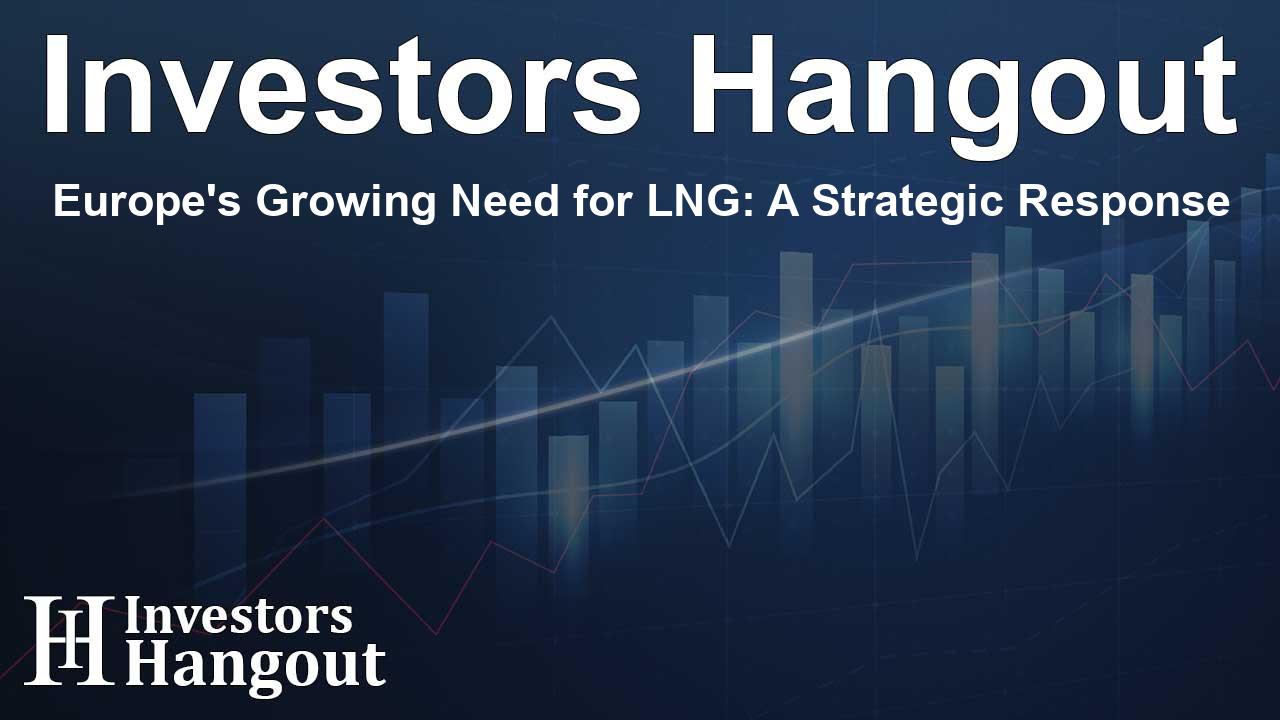Europe's Growing Need for LNG: A Strategic Response

Europe's Growing Dependence on LNG Imports
In a significant shift in energy strategy, Europe is expected to enhance its imports of liquefied natural gas (LNG). This adjustment is largely driven by the urgent need to meet storage targets as gas inventories continue to deplete at an alarming rate.
Current Inventory Status
Recent analyses indicate that gas inventories across Europe are being drawn down much faster compared to previous years. The average daily withdrawal of gas this winter stands at approximately 350 million cubic meters, which marks a notable increase from an average of 220 million cubic meters per day last winter season. Such demand indicates the growing necessity for LNG to bolster supplies.
Future Projections for Gas Storage
As of the latest assessments, data from Gas Infrastructure Europe shows that European storage levels are currently at 64% capacity. This represents a drop of more than 15% compared to levels observed in the prior year. Analysts have expressed concerns that gas inventories may exit the winter season at a low 34% full, prompting the need for greater LNG imports.
Meeting the Storage Target
To adhere to the European Union's ambitious target of achieving a 90% storage fill by October 2025, it has been noted that Europe will need to increase LNG imports by approximately 30% on an annualized basis. This reflects a concerted effort to shore up gas supply to meet future demands.
Market Implications and Pricing Trends
Pricing dynamics are also in flux, with the benchmark price for Dutch TTF currently trading 1.7% lower at 46.22 euros per megawatt hour. Given the increasing demand for LNG due to the declining gas inventories, price adjustments in the energy market may be anticipated as Europe navigates these challenges.
Impact on Energy Policy
Europe's energy policy is likely to face significant changes as the region adapts to its growing need for LNG. This dependence on liquefied natural gas not only serves to stabilize the immediate energy supply but also plays a pivotal role in shaping long-term energy strategies aligned with security and sustainability goals.
Frequently Asked Questions
Why is Europe increasing LNG imports?
Europe is increasing LNG imports to replenish rapidly depleting gas inventories and meet storage fill targets ahead of the winter season.
What is the current status of gas inventories in Europe?
Gas inventories in Europe are about 64% full, which is a decrease of over 15% from the previous year.
How much more LNG will Europe need to import?
Europe will need to import approximately 30% more LNG annually to achieve the EU's 90% storage fill target by October 2025.
What is the impact of current market pricing trends on LNG?
Current market pricing is affected by the increased demand for LNG, which may lead to future fluctuations in energy prices.
How is Europe's energy policy expected to change?
Europe's energy policy is likely to focus more on LNG imports to secure energy supply and align with sustainability objectives.
About The Author
Contact Addison Perry privately here. Or send an email with ATTN: Addison Perry as the subject to contact@investorshangout.com.
About Investors Hangout
Investors Hangout is a leading online stock forum for financial discussion and learning, offering a wide range of free tools and resources. It draws in traders of all levels, who exchange market knowledge, investigate trading tactics, and keep an eye on industry developments in real time. Featuring financial articles, stock message boards, quotes, charts, company profiles, and live news updates. Through cooperative learning and a wealth of informational resources, it helps users from novices creating their first portfolios to experts honing their techniques. Join Investors Hangout today: https://investorshangout.com/
The content of this article is based on factual, publicly available information and does not represent legal, financial, or investment advice. Investors Hangout does not offer financial advice, and the author is not a licensed financial advisor. Consult a qualified advisor before making any financial or investment decisions based on this article. This article should not be considered advice to purchase, sell, or hold any securities or other investments. If any of the material provided here is inaccurate, please contact us for corrections.
